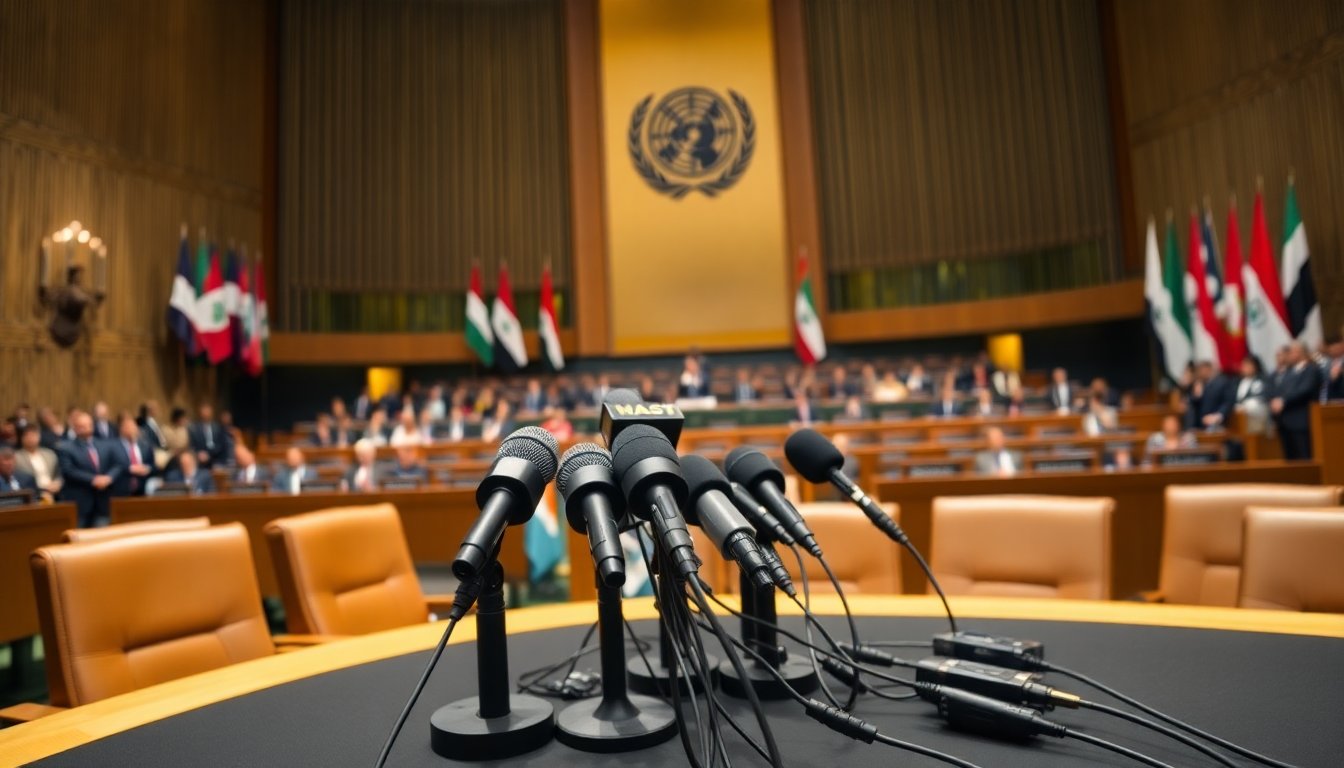Table of Contents
In a significant address at the United Nations, Syria’s President al-Sharaa commanded the attention of global leaders and media. His remarks arrive amid a complicated geopolitical backdrop, particularly regarding the ongoing crisis in Syria and its impact on regional stability. This speech not only clarified Syria’s stance but also emphasized the urgent need for coordinated efforts from the international community.
Key Themes in al-Sharaa’s Address
President al-Sharaa delivered a significant message regarding Syria’s challenges and ambitions. He underscored the importance of state sovereignty and the inherent right of nations to self-determination. By linking Syria’s struggles to broader concepts of independence and resistance against foreign intervention, he aimed to garner support for his country’s objectives. This perspective resonates with other nations facing similar issues, fostering a sense of solidarity among those that prioritize their autonomy.
Key Themes in al-Sharaa’s Address
In his recent speech, al-Sharaa underscored several critical themes. He condemned the devastating effects of foreign military actions in the region, which have intensified the ongoing humanitarian crisis. By shedding light on the struggles of civilians caught in conflict, he aimed to provoke a sense of urgency among international leaders to reevaluate their intervention strategies and support efforts.
Furthermore, al-Sharaa called for a renewed commitment to peace and dialogue. His emphasis on diplomatic solutions over military approaches resonates with a growing consensus among nations that lasting peace is attainable only through negotiation and mutual respect. The president’s appeal for international cooperation serves as a poignant reminder of the interconnectedness of global challenges, particularly in regions like the Middle East.
Impact on Global Relations
Al-Sharaa’s speech carries significant implications that reach beyond Syria. The president’s appeal for unity among nations highlights the evolving landscape of international relations. Countries are reassessing their foreign policies amid ongoing conflicts. His comments may also shape how other nations interact with Syria, especially regarding humanitarian aid and diplomatic recognition.
Shifting Alliances Amid Rising Tensions
In light of escalating tensions worldwide, Syria’s Foreign Minister al-Sharaa’s recent address may encourage nations to reassess their alliances. By advocating for a unified stance against foreign interference, Syria aims to establish new partnerships with countries that align with its vision of sovereignty. This shift could result in a realignment of regional alliances, particularly among nations facing similar adversities.
Additionally, al-Sharaa’s speech may prompt a reconsideration of humanitarian aid distribution methods. His call for respect for national sovereignty could lead donor countries to reevaluate the stipulations tied to their assistance, potentially fostering more sustainable support for Syria and comparable nations.
The Path Ahead for Syria
The future of Syria is intricate and uncertain. President al-Sharaa’s recent address at the United Nations indicates a readiness to pursue meaningful dialogue. How the international community responds to his speech will be pivotal in shaping Syria’s recovery and stability. As nations consider the call for cooperation and respect for sovereignty, we may be on the brink of a new chapter in Syria’s global relations.
President al-Sharaa’s speech transcended a mere presentation; it served as a call for solidarity, understanding, and decisive action amid ongoing challenges. The implications of his remarks are expected to resonate internationally. As the world observes, the prospect for a peaceful resolution to the Syrian crisis continues to be a beacon of hope.


